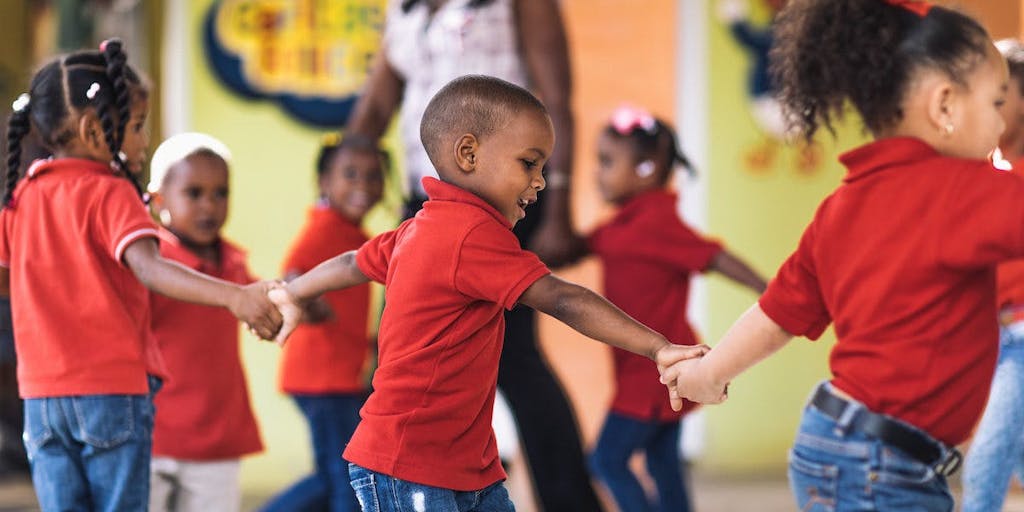Train up a child in the way he should go: and when he is old, he will not depart from it.
— Proverbs 22:6
VBS, also well known as Vacation Bible School, is a week-long day camp for kids to attend in the summer. It is generally led by local churches to teach kids about God when kids are on summer break off school. Have you signed your kids up for VBS this summer? Or, have you have been thinking of ways to develop active, compassionate kids? As an organization who invests in children to lift their entire communities out of poverty, here are five VBS-style activities of how you can help your kids learn about poverty this summer.

Day 1: Introduction to Poverty
What does poverty look like? Introducing the idea of poverty to kids who may never have experienced it can be hard. A good way to introduce them to the idea is to start by asking questions and get a group conversation going. Some examples might be: What if you didn’t have a bed to sleep in? What if you didn’t have shoes and therefore couldn’t play outside? What if you didn’t have a TV?
UNICEF has some great, short videos that are narrated by kids. We all know kids love watching videos, so one like the video below will help stimulate their brains, and think about the world in a different way:
Day 2: Make a DIY Piggybank
Now that the kids have been introduced to the idea of poverty, we can teach them how to help other people who don’t have as much as they do. Helping kids learn how to give is a valuable tool. Saving money little by little can also be a great way to show kids that even they can help with what they have to give. The VBS twist? Make one piggy bank together as a class and have each kid bring some change to class with them every day. There are some great ideas here for how to combine this into a fun DIY craft activity! At the end of VBS, donate the proceeds to an organization of your choice. This will also show the kids that doing something TOGETHER can make an even bigger impact!
Day 3: Restoring Broken Relationships
Poverty is largely affected by broken relationships. Relationships between other people. A relationship with ourselves. And our relationships with God. Today, encourage your kids to write a letter to someone they love, telling them WHY they love them. This will help them show appreciation for what they have and the relationships in their lives.
In Food for the Hungry’s child sponsorship program, your kids can write letters to a child in poverty and broaden their perspective on the world. This was the case for the Bauchiero family, whose kids got to meet their sponsored child in Peru. Check out the video below to see what the kids have to say about it!
Day 4: Care for the Earth

Time to get those hands dirty! Today, help each kid plant their own seed and show them what caring for our earth looks like. According to FAO, approximately 2 billion people (26.7% of the world population) base their livelihoods on agriculture, especially Africa, Asia, and Latin America. Gardening takes patience, care, and love. It also gives you a glimpse into the lives of the rural poor, who farm from sunup to sundown. For this activity, consider purchasing a small herb garden or plant some quick growing-seeds such as radishes, basil, and mixed perennials. Click here for an easy and sustainable to help teach your kids about gardening!
Learn more about how FH teaches farmers best practices for agricultural success.
Day 5: Create a Map Magnet
Today is the day to break open the piggy bank and see how much has been saved collectively! Decide as a group what the money should go towards, whether it be a local charity or international non-profit. Check out our Gift Catalog for a few more ideas–like buying a goat or chicken for someone in poverty! It is also important for kids to know the power of prayer and how to pray for people all over the world. Today, create a map magnet so that each kid will have a daily visual representation of how to care for someone else around the world. Practice praying as a group and encourage them to say their own prayer daily for someone else around the world.
Click here to learn more about child sponsorship. To read a few more lessons or continue teaching your kids about poverty at home, we have some great free resources you can download below:
- eBook: 7 Fun Activities to Teach Your Child Generosity
- eBook: 7 Lessons to Teach Your Kids About Serving the Poor
You may also be interested in:
A Story of Hope for Father’s Day
Four Activities to Teach Your Children About Poverty This Summer


